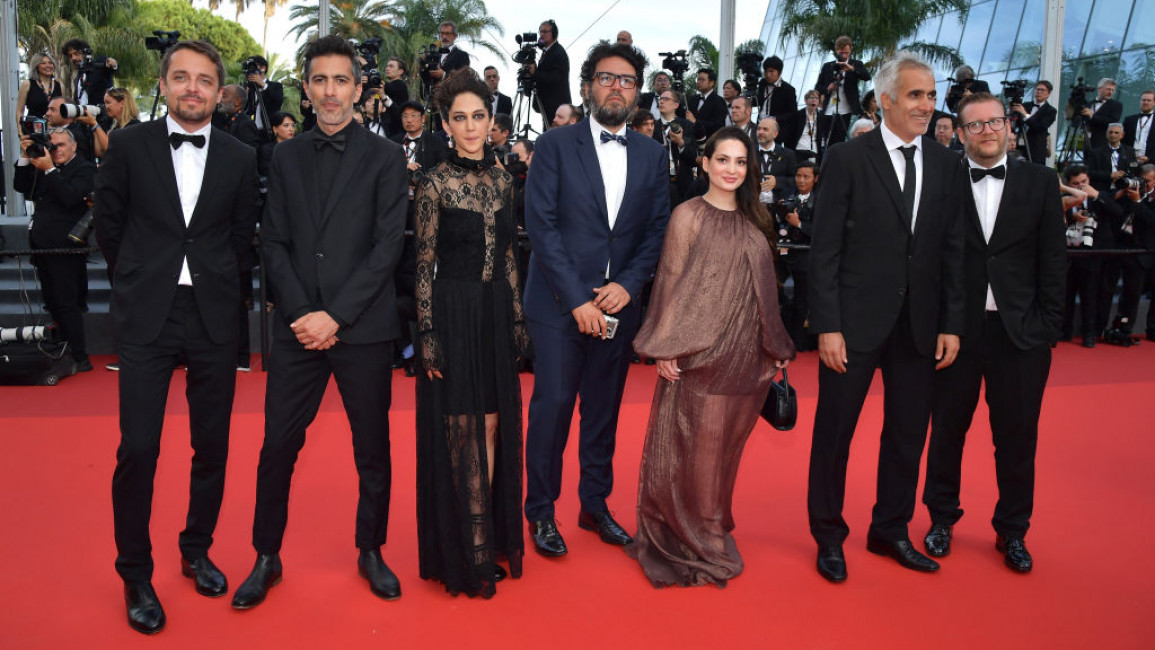Cannes Film Festival: Iran says protested to France over Holy Spider selection
Iran said on Wednesday it protested to France after the Cannes Film Festival selected a film about a serial killer who targets sex workers in the Islamic republic.
Holy Spider, directed by Danish-Iranian Ali Abbasi, was nominated in Cannes' main In Competition category at the festival that was held in the French Riviera resort last month.
Iran's Zar Amir Ebrahimi, who lives in exile following a smear campaign about her love life, won the best actress award for her role as a journalist trying to investigate the murders in the Iranian holy city of Mashhad.
"We formally protested to the French government through the foreign ministry," Iran's Culture Minister Mohammad Mehdi Esmaili said on state television.
"We will definitely consider this issue in our cultural exchanges with such governments," he added, without elaborating.
The festival is not officially linked to the French government.
The selection of Holy Spider was "wrong and completely political", and aimed "to show a dark picture of Iranian society", Esmaili said.
The Cinema Organization of Iran, affiliated with the culture ministry, lashed out on Monday at the "biased and political" decision to select the film.
Abbasi was denied permission to film in Iran and Holy Spider was eventually shot in Jordan.
The film was inspired by the true story about a working-class man who killed 16 sex workers in the early 2000s in Mashhad, Iran's second largest city and a main shrine city of Shia Islam.
In the film, Amir Ebrahimi tries to unravel the mystery of these murders but is confronted with the toxic masculinity of a patriarchal Iranian society.
Ebrahimi became a star in Iran in her early twenties for her supporting role in one of its longest-running soap operas, Nargess.
But her life and career fell apart shortly after the show ended, when a sex tape was leaked online in 2006 which, it was claimed, featured her.
Holy Spider was one of two Iranian films competing for the Palme d'Or this year, along with Saeed Roustaee's Leila's Brothers about a family struggling to fight their way out of poverty in Tehran.
Iran has rejected the Cannes Film Festival award for the film 'Holy Spider, which is about about a serial killer who targeted sex workers, as "biased and political" https://t.co/mFzAXL59UN
— The New Arab (@The_NewArab) May 30, 2022
Iran's culture minister warned of possible "restrictions" on Leila's Brothers since it was shown in Cannes before getting a screening licence from Tehran.
"According to the law, films that go to foreign festivals must have a screening licence, and the friends, who took the film to the Cannes Film Festival, were told that this would cause legal challenges for the film, and it would face restrictions," Esmaili said.
"This was told to the director and producer," the minister told state TV, without elaborating.
Roustaee, 32, had implied in Cannes that the film had yet to be approved for release in Iran.
"Getting a permit to shoot is a very extreme, tedious and long process. Then you need another permit to release the film theatrically and in this process, of course there is censorship," he told AFP at the festival.
Iran has an illustrious cinematic history, including past masters such as Abbas Kiarostami, who won the Palme d'Or in 1997, and Asghar Farhadi, who has twice won an Oscar for best foreign language film and served on the jury at Cannes this year.



![Widespread famine is imminent in Gaza [Getty Images]](/sites/default/files/styles/image_330x185/public/2024-03/GettyImages-2015647000.jpg?h=199d8c1f&itok=mJWWP_Td)